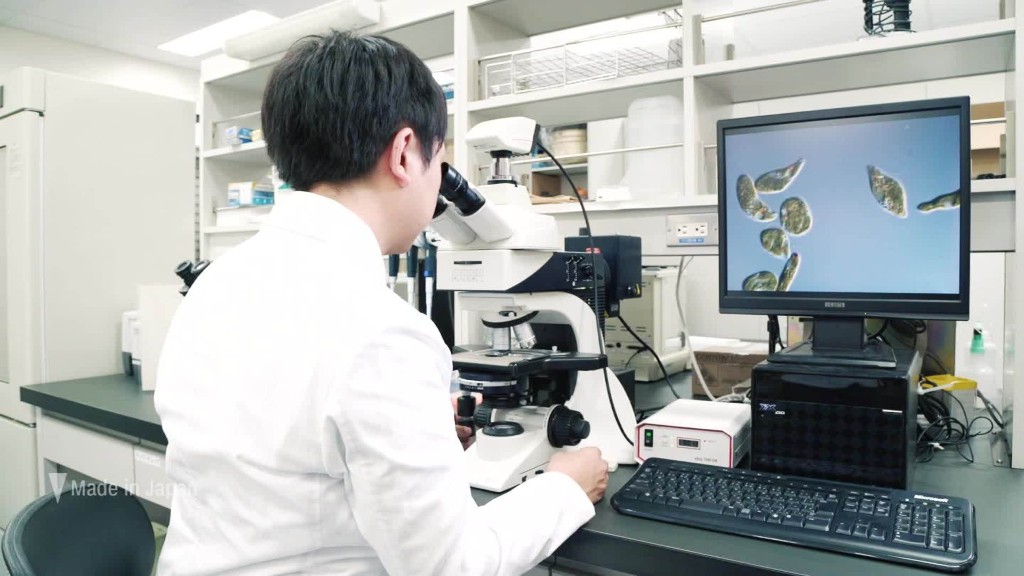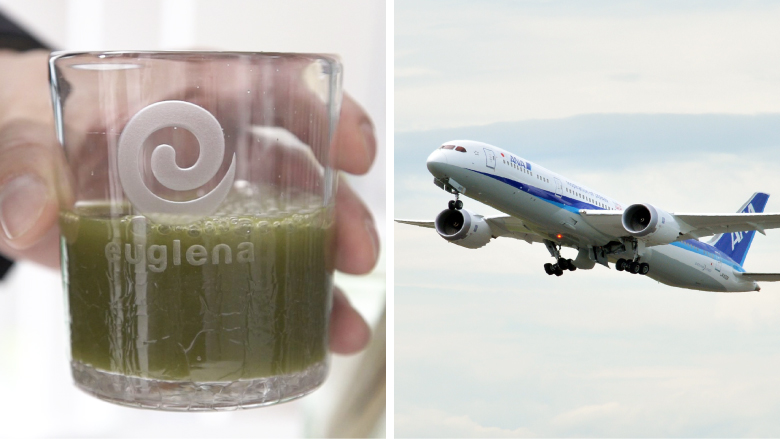
A tiny organism thinner than a strand of hair could help fuel airplanes in the future.
Japanese firm Euglena has been cultivating a type of algae for use in food and cosmetics. But it sees a range of other potential uses for it.
The company is aiming to produce 33,000 gallons of jet fuel a year from Japan's first algae biofuel refinery, partnering with top Japanese airline ANA (ALNPY).
"Everyone says it's crazy the first time they hear the idea," said Euglena's founder, Mitsuru Izumo. But "in terms of science and technology ... it's a very simple idea," he added.
Related: Japan's Rakuten bets big on drones for online shopping
Oil that is chemically similar to kerosene can be extracted from the dried algae's powder.
Euglena, which shares its name with the algae its business relies on, is building a test facility in Yokohama, near one of Tokyo's two main airports. It's expected to pump out five barrels of "green crude" a day after it comes online next year.
But that amount is tiny. Izumo wants to ramp up production 400% and open a second refinery by 2020 in order to bring down the cost of the carbon-neutral biofuel to make it commercially viable.

Even then, the algae extract will have to be blended with regular jet fuel and will still only provide enough for a limited number of flights.
Izumo came across the algae -- which has characteristics of both plants and animals -- while searching for a superfood. After witnessing starving children during a 1998 visit to Bangladesh, he wanted to help fight malnutrition.
He was inspired by a story in a manga comic to find a "magic bean"-like ingredient that could solve major problems facing the world.
Related: The quest to make Japan's millions of vending machines more fun
Izumo didn't find a magic bean, so he settled for microscopic algae instead.
That decision has worked out well. He's built a company out of it that's valued at around $930 million on the Tokyo Stock Exchange.
And some of his staff have dreams of even more ambitious applications, including using the algae to power a trip to Mars and feed the astronauts along the way.
"If we can cultivate it in space, it could be used to support human lives," said research director Kengo Suzuki. He admitted, though, that a lot more research is needed.
-- Melissa Hassett contributed to this report.

